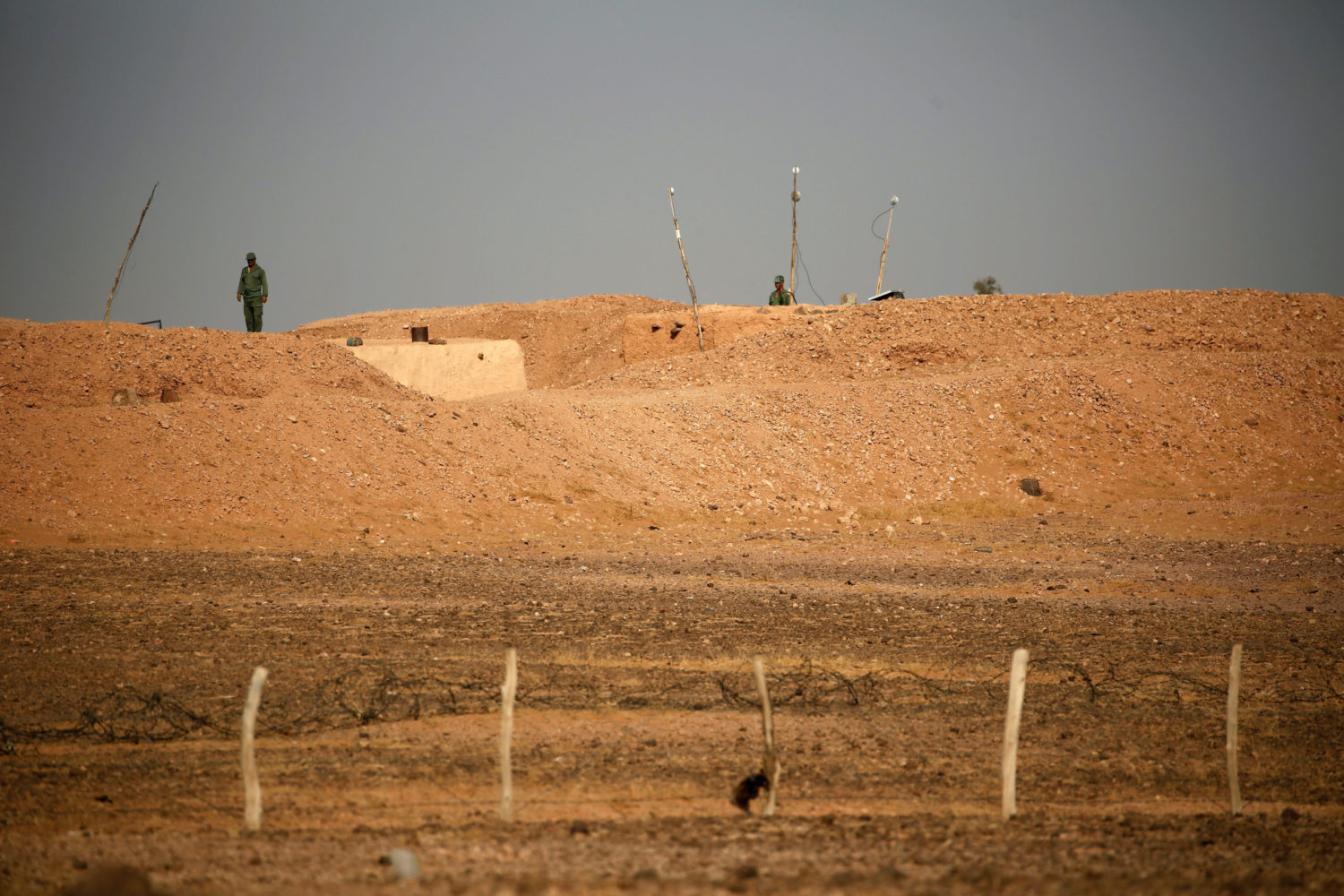
By Jon Nazca and Mariano Valladolid
CEUTA, Spain (Reuters) -A sudden influx of migrants swimming into the Spanish enclave of Ceuta in northern Africa is a serious crisis for Europe, Prime Minister Pedro Sanchez said on Tuesday, vowing to re-establish order promptly amid heightened diplomatic tensions with Morocco.
Spain deployed troops to Ceuta to patrol the border with Morocco after around 8,000 migrants, many from Sub-Saharan Africa and including some 1,500 minors, entered the enclave on Monday and Tuesday by swimming in or climbing over the fence.
Armored vehicles were guarding Ceuta’s beach on Tuesday, and soldiers and police used batons to clear migrants from the beach and threw smoke bombs to discourage others from crossing.
A Reuters reporter on the ground said the number of arrivals by sea had slowed, and some migrants were voluntarily returning to Morocco. A few others could be seen being carried away by soldiers, but dozens still waded in the water towards Ceuta.
Spain said approximately 4,000 migrants had already been sent back to Morocco, under a readmission deal.
The regional leader of Ceuta criticized what he described as Morocco’s passivity in the face of Monday’s surge, and some independent experts said Rabat had initially allowed it as a means of pressuring Madrid over its decision to admit a rebel leader from the Western Sahara to a Spanish hospital.
Moroccan authorities did not respond to requests for comment on Tuesday.
The Spanish government did not make that connection, with Sanchez calling the north African nation a friend of Spain and the interior ministry citing cooperation over the readmissions, although Foreign Minister Arancha Gonzalez Laya told Morocco’s ambassador Spain rejected and disapproved of the mass arrivals.
Moroccan TV footage showed the authorities setting up barriers on Tuesday to prevent people from crossing into Ceuta.
“This sudden arrival of irregular migrants is a serious crisis for Spain and Europe,” Sanchez said in a televised address before his arrival in Ceuta.
European Commission Vice-President Margaritis Schinas tweeted that the enclave’s frontier was a European border, expressing his “full solidarity with Spain”.
Ceuta, with a population of 80,000, is on the northern tip of Morocco across from Gibraltar. Along with another Spanish enclave, Melilla, it has long been a magnet for African migrants seeking a better life in Europe. Morocco has a claim on both.
WESTERN SAHARA DISPUTE
The spike in arrivals took place after Rabat expressed its anger last month when Spain discreetly admitted Brahim Ghali, the leader of Western Sahara’s rebel Polisario Front to hospital. Madrid said it acted on purely humanitarian grounds.
Morocco’s Foreign Ministry criticized what it said was Spain’s decision to admit Ghali under a false identity without informing Morocco, warning of repercussions.
The Polisario Front wants the Western Sahara to be an independent state rather than part of Morocco. Algeria, Morocco’s regional rival, backs the Polisario Front.
The United States in December recognized Moroccan sovereignty over the Western Sahara territory.
(Reporting by Belen Carreno, Joan Faus, Cristina Galan and Inti Landauro, Writing by Andrei Khalip and Ingrid Melander, Editing by Estelle Shirbon and Alexandra Hudson)





